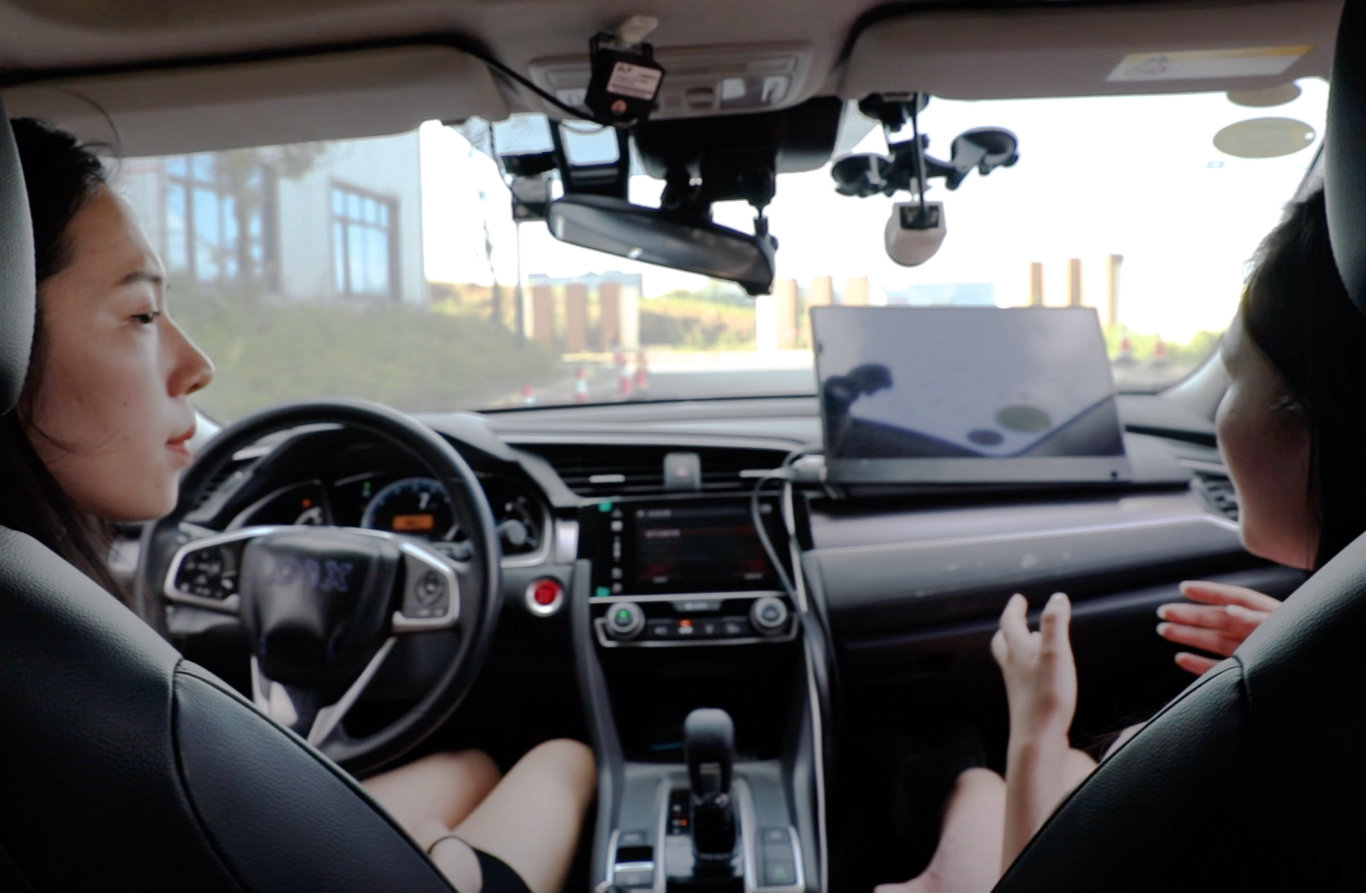

"I don't know how to drive!"
"Neither do I. Don't worry."
After Nancy Lee invited me to test drive a self-driving car, I felt a bit anxious. She put me in the driver's seat and told me to relax and enjoy the ride, without even touching the steering wheel.
Nancy is the marketing manager for PIX Moving, a self-driving startup based in Guiyang, southwest China's Guizhou Province.
Autonomous vehicles are one of the most exemplary real-world applications of artificial intelligence, big data, motion control, robotics, digital manufacturing, and even metal 3D printing – a collaborative mix of all of the above.
Sitting in the car, Nancy initiated the self-driving mode. It slowly started to move at a speed of around 20 kilometers per hour. "You can do anything you want while the car is driving – even read or drink coffee, since your hands and feet are free," Nancy said.

As the driverless car approached a corner, I stared at the steering wheel anxiously, not knowing whether it would turn safely. Surprisingly, the car made the turn smoothly and even continued to switch lane.
This is all thanks to the engineers conducting multiple road tests in the industrial park every day to collect massive data and train the algorithms, teaching the car what to do in every possible real-life scenario, Nancy explained.
The autonomous chassis of the car was manufactured using metal 3D printing which makes it highly customizable. The company visions smart cities filled with robo-vehicles, including pizza trucks, coffee cars, and even self-driving hotels, which would all become autonomously routed and free-moving parts of cities.
"How do you, as entrepreneurs, cope with the stress brought by the intense competition as more players join the industry?" I asked Nancy.
"From my point of view, the current stage of self-driving is far from competition; it's more about collaborating to facilitate the wider application of self-driving technology,” she answered.

She explained that the self-driving industry has quite a long industry chain: some companies develop algorithms, some build chips, some conduct data collection and others develop sensors. "We've collaborated and partnered with many other companies in the industry, including those from other countries," Nancy said.
"Why Guiyang? Why did you choose this city for your startup?" I asked just before the car came to a stop.
"Because Guiyang is just like a startup, it is full of people who are exploring, innovating and iterating,” she said with a smile.
As China's first big data pilot zone, Guiyang has actively promoted the deep integration of big data and the real economy since China's big data valley officially settled in the city in 2015. The main business income of big data enterprises in Guiyang reached 100 billion yuan in 2018, a year-on-year increase of 22.4 percent.
"Fully embracing emerging industries, Guiyang is constantly attracting young pioneers and entrepreneurs, which gives the city a vibe of vitality, energy and hope," Nancy said.

 Award-winning photos show poverty reduction achievements in NE China's Jilin province
Award-winning photos show poverty reduction achievements in NE China's Jilin province People dance to greet advent of New Year in Ameiqituo Town, Guizhou
People dance to greet advent of New Year in Ameiqituo Town, Guizhou Fire brigade in Shanghai holds group wedding
Fire brigade in Shanghai holds group wedding Tourists enjoy ice sculptures in Datan Town, north China
Tourists enjoy ice sculptures in Datan Town, north China Sunset scenery of Dayan Pagoda in Xi'an
Sunset scenery of Dayan Pagoda in Xi'an Tourists have fun at scenic spot in Nanlong Town, NW China
Tourists have fun at scenic spot in Nanlong Town, NW China Harbin attracts tourists by making best use of ice in winter
Harbin attracts tourists by making best use of ice in winter In pics: FIS Alpine Ski Women's World Cup Slalom
In pics: FIS Alpine Ski Women's World Cup Slalom Black-necked cranes rest at reservoir in Lhunzhub County, Lhasa
Black-necked cranes rest at reservoir in Lhunzhub County, Lhasa China's FAST telescope will be available to foreign scientists in April
China's FAST telescope will be available to foreign scientists in April